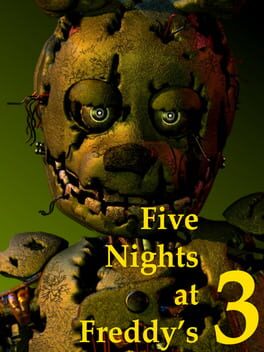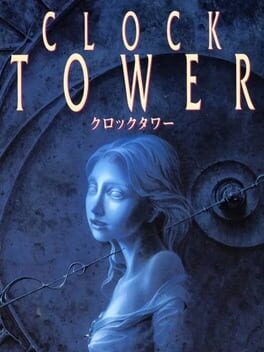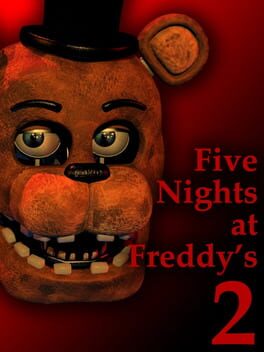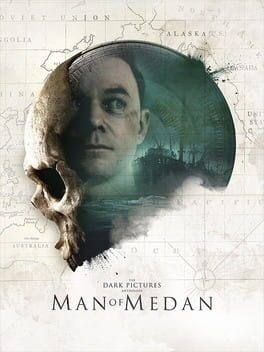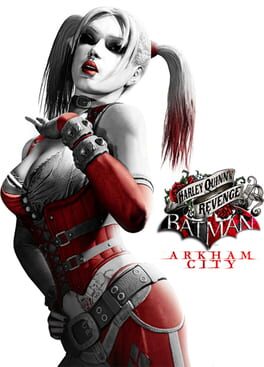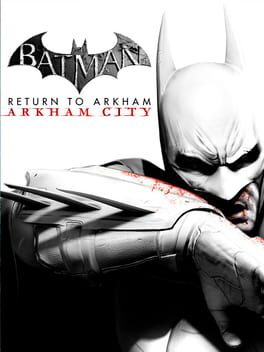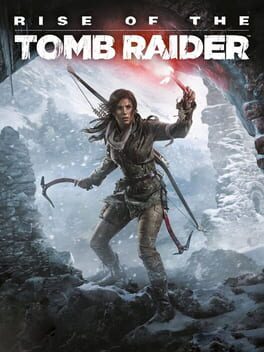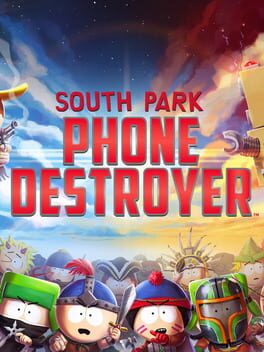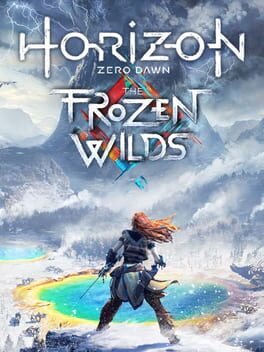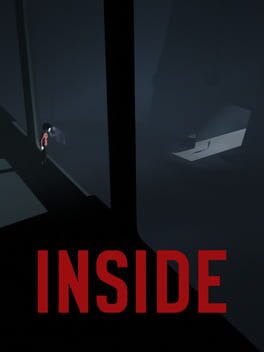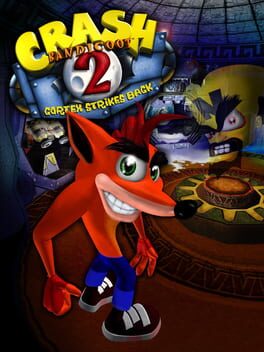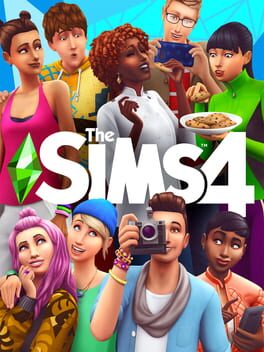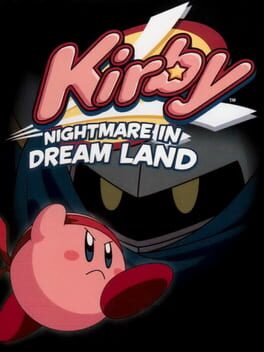sadisticservant
Five Nights at Freddy's 3 was a game that we used to play back in high school. I remember pretty much everyone in my class was afraid by it, while I was hating on it because it lacked the improvements of the sequel and was so far removed from the original's atmosphere. Fastforward a few years, I still believe that it is a lesser sequel to the first, but I certaintly don't have the same frustration that I used to have from it now.
In terms of presentation and challenge, FNAF 3 is an entirely different entry. The familiar and unsettling atmosphere that made the first game, and to some extent the second game, such a distinctive entry in the genre, is no longer there. Additionally, the large roster of animatronics from the second game has been replaced with just Springtrap, the only animatronic.
You'd think that by only focusing on a single animatronic, it would be the most threatening by far, but that is not the case at all. As springtrap can easily be exploitable by simply using the lure noise to keep him in place in a single room, I was able to use this strategy for the first four nights and even part of the fifth.
The challenge, instead, lies in figuring out where Springtrap is. That being said, I'm not really sure if it was intentional or just a design error. Unlike the full-screen camera view in the other two games, the small camera panel makes it impossible to tell where Springtrap is. The poor placement of Springtrap, static effects, and gloomy hallways further compounded this problem.
The one thing that I hate the most about the game, though, both now and in high school, is the sheer inconsistency of Springtrap. None of his jump scares, if you could even call them that, elicit any kind of reaction. He's supposed to be this scary animatronic that's more powerful than any of what has been introduced in the franchise, yet his attacks in the game are nothing more but goofy. Additionally, his inconsistency can also be found during his hunting segment, as he could be at the very edge of the building then he's already in the room with you in a matter of seconds. This really threw me into a loop, thinking that I might have been doing something wrong with the game.
Overall though, I expected it to be a lot worse than I remember it to be, but honestly, it wasn't all that bad. Sure, I can't really give out anything positive about the game because honestly, I didn't find it anything worth noting about it, but at least it isn't as frantic and random as FNAF 2.
In terms of presentation and challenge, FNAF 3 is an entirely different entry. The familiar and unsettling atmosphere that made the first game, and to some extent the second game, such a distinctive entry in the genre, is no longer there. Additionally, the large roster of animatronics from the second game has been replaced with just Springtrap, the only animatronic.
You'd think that by only focusing on a single animatronic, it would be the most threatening by far, but that is not the case at all. As springtrap can easily be exploitable by simply using the lure noise to keep him in place in a single room, I was able to use this strategy for the first four nights and even part of the fifth.
The challenge, instead, lies in figuring out where Springtrap is. That being said, I'm not really sure if it was intentional or just a design error. Unlike the full-screen camera view in the other two games, the small camera panel makes it impossible to tell where Springtrap is. The poor placement of Springtrap, static effects, and gloomy hallways further compounded this problem.
The one thing that I hate the most about the game, though, both now and in high school, is the sheer inconsistency of Springtrap. None of his jump scares, if you could even call them that, elicit any kind of reaction. He's supposed to be this scary animatronic that's more powerful than any of what has been introduced in the franchise, yet his attacks in the game are nothing more but goofy. Additionally, his inconsistency can also be found during his hunting segment, as he could be at the very edge of the building then he's already in the room with you in a matter of seconds. This really threw me into a loop, thinking that I might have been doing something wrong with the game.
Overall though, I expected it to be a lot worse than I remember it to be, but honestly, it wasn't all that bad. Sure, I can't really give out anything positive about the game because honestly, I didn't find it anything worth noting about it, but at least it isn't as frantic and random as FNAF 2.
1995
Weirdly, I've found myself playing a lot of point-and-click games lately; however, Clock Tower might just be one of the best yet.
Despite being an old and forgotten game, Clock Tower remains a strong contender for one of the best horror games of all time. All due thanks to its amazing atmosphere and minimal but iconic sound design.
The visuals also remains impressive, providing a detailed sprite work that looks artistically better than most modern 2D games today. The implementation of RNG also ensures that no playthrough is ever the same. And while the Argento inspiration is quite blatant, it all works to satisfy my itch for a single player slasher game. In fact, I think this is just one of the first and few singler player slasher game on the market, which makes the game all the more unique.
Although some aspect haven't aged as well as some parts of the game. The hallway map all look the same, making it very easy to get lost in. The RNG can also be a bit way too random, causing me to restart the entire game on my first run because it probably didn't expect me to use an optional item that early on in the story.
Sure, it may be the least scariest game on the list, but it surely is one of the most unique out there.
Despite being an old and forgotten game, Clock Tower remains a strong contender for one of the best horror games of all time. All due thanks to its amazing atmosphere and minimal but iconic sound design.
The visuals also remains impressive, providing a detailed sprite work that looks artistically better than most modern 2D games today. The implementation of RNG also ensures that no playthrough is ever the same. And while the Argento inspiration is quite blatant, it all works to satisfy my itch for a single player slasher game. In fact, I think this is just one of the first and few singler player slasher game on the market, which makes the game all the more unique.
Although some aspect haven't aged as well as some parts of the game. The hallway map all look the same, making it very easy to get lost in. The RNG can also be a bit way too random, causing me to restart the entire game on my first run because it probably didn't expect me to use an optional item that early on in the story.
Sure, it may be the least scariest game on the list, but it surely is one of the most unique out there.
Five Nights at Freddy's is one of those games that I think didn't really need a sequel, and yet here I am playing one that was released only a few months after the first game.
As a sequel, I think this game succeeds at expanding the overlooming mystery as well as providing many game-changing mechanics from the first game, some for better and some for worse.
One notable inclusion from this sequel, though, is the massive roster of animatronics. Each of them boasts a pretty slick and creepy design. It's pretty fun trying to find a way to expose the animatronics' weaknesses. When I found out how this one specific sound can be an indicator if an animatronic is near me, it felt so satisfying, and it felt like I was actually learning.
Although, because of the amount of animatronics this time around, trying to keep tabs on all of them can be kind of hectic, which also results in a higher difficulty. I remember only really dying once in the first game, but here, I died on the 2nd night three times!
The difficulty is also not helped by the unresponsive mask. Often times, it doesn't really respond quickly enough to my inputs, and sometimes it doesn't even register it entirely, causing many unnecessary and unavoidable deaths.
I also thought that this sequel never really managed to reach the same heights as its predecessor in terms of atmosphere. I never once felt scared with the game, nor did the jump scares really work. In fact, the jump scares were so common that it lost its impact pretty quickly. Simply put, the first game's atmosphere remains unmatched.
The first game's atmosphere remains unmatched
Maybe someday I'll get to finish this hectic jump scare simulator, but today, it will remain unfinished.
As a sequel, I think this game succeeds at expanding the overlooming mystery as well as providing many game-changing mechanics from the first game, some for better and some for worse.
One notable inclusion from this sequel, though, is the massive roster of animatronics. Each of them boasts a pretty slick and creepy design. It's pretty fun trying to find a way to expose the animatronics' weaknesses. When I found out how this one specific sound can be an indicator if an animatronic is near me, it felt so satisfying, and it felt like I was actually learning.
Although, because of the amount of animatronics this time around, trying to keep tabs on all of them can be kind of hectic, which also results in a higher difficulty. I remember only really dying once in the first game, but here, I died on the 2nd night three times!
The difficulty is also not helped by the unresponsive mask. Often times, it doesn't really respond quickly enough to my inputs, and sometimes it doesn't even register it entirely, causing many unnecessary and unavoidable deaths.
I also thought that this sequel never really managed to reach the same heights as its predecessor in terms of atmosphere. I never once felt scared with the game, nor did the jump scares really work. In fact, the jump scares were so common that it lost its impact pretty quickly. Simply put, the first game's atmosphere remains unmatched.
The first game's atmosphere remains unmatched
Maybe someday I'll get to finish this hectic jump scare simulator, but today, it will remain unfinished.
Doki Doki Literature Club is one of those special games that's just hard to forget. It expertly blends cuteness with depressing horror, creating one of the most shocking and creative narratives in the genre.
Although, on the surface, it looks like any other dating visual novel game, it doesn't take long for it to show its secrets. Every single twists for both the narrative and characters is heartbreaking and completely unexpected. Even if you already knew the twist, like me, it still manages to caught me by surprise.
I also love how each of the four characters has their own distinct personality and writing style, which makes them all the more endearing. Simply reading these poems alone already makes the game worth playing, as the script was written so well that you could really feel the passion behind them.
If I could recommend a version to play though, I would definitely pick the original free version as this expansion does make a few changes that are, quite honestly, downgrade and even immersion breaking.
Despite it though, Doki Doki Literature Club remains one of the best and most original horror games of the modern generation. It's one that even those who aren't into cutesy aesthetics should still try to play.
Although, on the surface, it looks like any other dating visual novel game, it doesn't take long for it to show its secrets. Every single twists for both the narrative and characters is heartbreaking and completely unexpected. Even if you already knew the twist, like me, it still manages to caught me by surprise.
I also love how each of the four characters has their own distinct personality and writing style, which makes them all the more endearing. Simply reading these poems alone already makes the game worth playing, as the script was written so well that you could really feel the passion behind them.
If I could recommend a version to play though, I would definitely pick the original free version as this expansion does make a few changes that are, quite honestly, downgrade and even immersion breaking.
Despite it though, Doki Doki Literature Club remains one of the best and most original horror games of the modern generation. It's one that even those who aren't into cutesy aesthetics should still try to play.
After finishing Until Dawn, I became eagerly excited for what Supermassive Games' next outing is. Although an anthology franchise isn't exactly what I wanted or needed, I was still pretty hooked with it. It's a shame though that playing the game was just as boring as being stuck in the middle of the ocean.
First, before all of the terrible flaws that this game has, I want to point out all of what it does good, even if it may only be quite a few. For starters, I felt more encouraged to experiment with the characters' traits this time around compared to their previous game, instead of just trying to be kind all the time because of the surprisingly good dialogue system.
It also also looks so much better than Until Dawn in some areas, although, the facial animation just looks way too uncanny for my liking. The characters have these soulless stares that are very off putting even hours into the game.
One thing I hated though was the constant and immersion breaking loading screen in-between camera changes. There's nothing more annoying than enjoying a scene, only for it to be ruined by a sudden black loading screen for the next camera angle. Despite this though, I found the initial hour of the game to be completely enjoyable, albeit a bit slow, and I never wanted to drop it.
The longer I played the game though, the more flaws started to arise, and it really hampered the immersion. Weird bugs started to appear, the constant loading started to become longer, and the story just never managed to grab my attention once the action started.
It felt more like a PG-13 supernatural story, with not a single ounce of self awareness or originality in its plot. It just pretty much gives all of its scares right in the middle of the story and then just as you know, the game is abruptly at the 3rd act. The plot twist was also delivered in such a casual manner that makes it come across as anti climactic.
What's worse is that most of the gameplay section through the main setting of the game just consists of you doing brain dead QTEs and walking from a straight corridor of point A to B with little in the way of exploration. And when there is an exploration segment, there seems to be an invisible timer running in the background that makes exploration very discouraging and makes other characters react as if you're very incompetent if you don't reach the intended area in time. Because of this constraint to the gameplay, Man of Medan felt more like an interactive movie, and a bad one at that.
Despite how bad the game was I still wanted to try out the second campaign from another character's point of view, hoping that this could help save it, only to find out that this mode is completely missing from my game despite doing every single requirements and even checking if it was installed. It could probably be the result of a bug, and one that seems to not have any solution available online, so as of today, I can't play the other half of this mediocre horror game and I think I might even be better for it.
First, before all of the terrible flaws that this game has, I want to point out all of what it does good, even if it may only be quite a few. For starters, I felt more encouraged to experiment with the characters' traits this time around compared to their previous game, instead of just trying to be kind all the time because of the surprisingly good dialogue system.
It also also looks so much better than Until Dawn in some areas, although, the facial animation just looks way too uncanny for my liking. The characters have these soulless stares that are very off putting even hours into the game.
One thing I hated though was the constant and immersion breaking loading screen in-between camera changes. There's nothing more annoying than enjoying a scene, only for it to be ruined by a sudden black loading screen for the next camera angle. Despite this though, I found the initial hour of the game to be completely enjoyable, albeit a bit slow, and I never wanted to drop it.
The longer I played the game though, the more flaws started to arise, and it really hampered the immersion. Weird bugs started to appear, the constant loading started to become longer, and the story just never managed to grab my attention once the action started.
It felt more like a PG-13 supernatural story, with not a single ounce of self awareness or originality in its plot. It just pretty much gives all of its scares right in the middle of the story and then just as you know, the game is abruptly at the 3rd act. The plot twist was also delivered in such a casual manner that makes it come across as anti climactic.
What's worse is that most of the gameplay section through the main setting of the game just consists of you doing brain dead QTEs and walking from a straight corridor of point A to B with little in the way of exploration. And when there is an exploration segment, there seems to be an invisible timer running in the background that makes exploration very discouraging and makes other characters react as if you're very incompetent if you don't reach the intended area in time. Because of this constraint to the gameplay, Man of Medan felt more like an interactive movie, and a bad one at that.
Despite how bad the game was I still wanted to try out the second campaign from another character's point of view, hoping that this could help save it, only to find out that this mode is completely missing from my game despite doing every single requirements and even checking if it was installed. It could probably be the result of a bug, and one that seems to not have any solution available online, so as of today, I can't play the other half of this mediocre horror game and I think I might even be better for it.
Harley Quinn's Revenge is an interesting DLC for Arkham City, albeit one that is a bit too short to truly immerse yourself in.
Notably, the DLC introduces Robin as a playable character, a presence in the main campaign that seemed more like fan service than anything. However, just as the DLC began to hit its stride and gain momentum, it abruptly concludes. In fact, the short length of the experience left me with little to no input for my notes!
Notably, the DLC introduces Robin as a playable character, a presence in the main campaign that seemed more like fan service than anything. However, just as the DLC began to hit its stride and gain momentum, it abruptly concludes. In fact, the short length of the experience left me with little to no input for my notes!
Although I didn't quite had the same appreciation for Arkham Asylum as others, I did find it to be an enjoyable experience despite its dated mechanics. Regrettably, the sequel, Arkham City, seems to inherit many of the same issues that plagued its predecessor.
Arkham City, disappointingly, fails to significantly enhance or address the flaws present in its forerunner, essentially carrying over the same set of problems. Surprisingly, I found myself favoring Arkham Asylum, as Batman's somewhat stiff movements seemed better suited to the game's claustrophobic setting and atmosphere.
Similar to its predecessor, the game did grow on me with extended playtime. The slight changes to the combat mechanics made it easier to pull off combos. Additionally, I didn't find Batman's voice acting to be all that lifeless this time around, marking a positive change.
However, despite a strong and solid foundation, the narrative encountered a hiccup. Despite being set up as the primary antagonist, Hugo Strange failed to leave a lasting impact, with him feeling like he never really did anything in the game, even with his knowledge of Batman's identity. This shortfall became more apparent when contrasted with the more prominent role played by the Joker.
Furthermore, the port of Arkham City suffered from noticeable performance issues, with significant frame rate drops occurring even during grappling. This technical setback detracted from the overall experience, making certain aspects less enjoyable.
While Arkham City brought some improvements to the combat mechanics and addressed some of my voice acting concerns, it struggled to escape the shadow of its predecessor's issues. The narrative's execution, coupled with technical performance problems, diminished the overall enjoyment and potential impact of the game.
Arkham City, disappointingly, fails to significantly enhance or address the flaws present in its forerunner, essentially carrying over the same set of problems. Surprisingly, I found myself favoring Arkham Asylum, as Batman's somewhat stiff movements seemed better suited to the game's claustrophobic setting and atmosphere.
Similar to its predecessor, the game did grow on me with extended playtime. The slight changes to the combat mechanics made it easier to pull off combos. Additionally, I didn't find Batman's voice acting to be all that lifeless this time around, marking a positive change.
However, despite a strong and solid foundation, the narrative encountered a hiccup. Despite being set up as the primary antagonist, Hugo Strange failed to leave a lasting impact, with him feeling like he never really did anything in the game, even with his knowledge of Batman's identity. This shortfall became more apparent when contrasted with the more prominent role played by the Joker.
Furthermore, the port of Arkham City suffered from noticeable performance issues, with significant frame rate drops occurring even during grappling. This technical setback detracted from the overall experience, making certain aspects less enjoyable.
While Arkham City brought some improvements to the combat mechanics and addressed some of my voice acting concerns, it struggled to escape the shadow of its predecessor's issues. The narrative's execution, coupled with technical performance problems, diminished the overall enjoyment and potential impact of the game.
2013's Tomb Raider was a remarkable reboot of Lara's iconic franchise, drawing inspiration from the beloved Uncharted series while crafting an original adventure that, at times, even rivaled its source of inspiration. It's a shame though that this massive sequel, while widely beloved by many, failed to evoke the same level of excitement for me.
Rise of the Tomb Raider introduced a plethora of new gameplay elements while refining certain aspects from its predecessor. Among the notable inclusions, the grapple stood out as a particularly impressive addition. The introduction of sprint also contributed to a more refined pacing in exploration, although curiously, its impact did not extend to the platforming aspects.
The skill tree has also been expanded, although it never really felt like any of the available skills provided any changes to the gameplay. In fact, some of it was quite needless as the difficulty was thrown out of the window for this installment. The many stealth sections didn't even need to be there as there's frequently only 2-3 enemies in a single area.
One thing I did noticed while playing through its first few hours was that it seemed heavily reminiscent of Uncharted 2. This resemblance persisted throughout the experience, reaching a point where the game appeared to draw excessively from its inspiration, ultimately diluting the unique qualities that had made its predecessor exceptional. Notably, there was a perceptible shift away from the emphasis on spectacle and explosions, replaced by lackluster shootouts. Furthermore, the sequel abandoned the unsettling horror aspect that had added a distinctive layer to the first installment—a departure that I personally found disappointing.
But the aspect which I hated the most and ruined my enjoyment was the abundant amount of notes scattered around the game. It was like every single room that you went in, there's always a new note to read, significantly slowing down the pacing.
While Rise of the Tomb Raider made an effort in mixing up its gameplay, I think that many of the changes that it did brought only served to hamper the experience, resulting in a disappointingly weak sequel to an otherwise amazing game.
Rise of the Tomb Raider introduced a plethora of new gameplay elements while refining certain aspects from its predecessor. Among the notable inclusions, the grapple stood out as a particularly impressive addition. The introduction of sprint also contributed to a more refined pacing in exploration, although curiously, its impact did not extend to the platforming aspects.
The skill tree has also been expanded, although it never really felt like any of the available skills provided any changes to the gameplay. In fact, some of it was quite needless as the difficulty was thrown out of the window for this installment. The many stealth sections didn't even need to be there as there's frequently only 2-3 enemies in a single area.
One thing I did noticed while playing through its first few hours was that it seemed heavily reminiscent of Uncharted 2. This resemblance persisted throughout the experience, reaching a point where the game appeared to draw excessively from its inspiration, ultimately diluting the unique qualities that had made its predecessor exceptional. Notably, there was a perceptible shift away from the emphasis on spectacle and explosions, replaced by lackluster shootouts. Furthermore, the sequel abandoned the unsettling horror aspect that had added a distinctive layer to the first installment—a departure that I personally found disappointing.
But the aspect which I hated the most and ruined my enjoyment was the abundant amount of notes scattered around the game. It was like every single room that you went in, there's always a new note to read, significantly slowing down the pacing.
While Rise of the Tomb Raider made an effort in mixing up its gameplay, I think that many of the changes that it did brought only served to hamper the experience, resulting in a disappointingly weak sequel to an otherwise amazing game.
Despite its many controversies, South Park remains a funny and strong series that often manages to provide a refreshing satire of contemporary issues. Not only ago, the series had ventured out into video game territory, and one of its entries is South Park: Phone Destroyer.
From its early hours, Phone Destroyer was able to entertain me, with it being able to capture, not only the humor of the series but as well as its unique art style. It's a shame though that aside from its presentation, the game has little to no other redeeming qualities.
The gameplay, while starting easily enough, gets progressively difficult the longer that you play, almost to the point of unwinnable during its middle point. The only way to remedy this seems to hinge on luck or resorting to buying the game's microtransactions using real-world money - an aspect that considerably dampened my interest in the game.
And its a shame because the game had the potential and had a somewhat interesting to story. Too bad, the game is riddled with your typical greedy mobile game predatory tactics. This is disheartening, as it detracts from what could have been a more fulfilling game.
From its early hours, Phone Destroyer was able to entertain me, with it being able to capture, not only the humor of the series but as well as its unique art style. It's a shame though that aside from its presentation, the game has little to no other redeeming qualities.
The gameplay, while starting easily enough, gets progressively difficult the longer that you play, almost to the point of unwinnable during its middle point. The only way to remedy this seems to hinge on luck or resorting to buying the game's microtransactions using real-world money - an aspect that considerably dampened my interest in the game.
And its a shame because the game had the potential and had a somewhat interesting to story. Too bad, the game is riddled with your typical greedy mobile game predatory tactics. This is disheartening, as it detracts from what could have been a more fulfilling game.
Horizon: Zero Dawn is a gaming experience that captivated me, even as a newcomer without prior knowledge of the franchise. Surprising me in every facet, this substantial expansion effortlessly mirrors the strengths of its main game while introducing additional elements, resulting in an experience nearly as breathtaking as the main campaign.
The decision to confine the majority of the action to a smaller setting proves to be quite a smart change. This not only enhances the pacing of the narrative, providing a more tightly woven and coherent story but also contributes to a more refined exploration experience of its open world.
Despite the limited setting, the game manages to maintain a commendable length, offering a plethora of engaging activities and collectibles to find. The wealth of content ensures a satisfying and immersive experience.
One noteworthy improvement lies in the character animations, which exhibit a remarkable level of expressiveness in contrast to the main game's somewhat stiff and lifeless animations, making it difficult to revert to the main campaign's.
Horizon: Zero Dawn - The Frozen Wilds has kindled my anticipation for the future of the franchise. The meticulous attention to detail in the world, refined gameplay, and enhanced animations showcase a commitment to elevating the overall experience. I eagerly look forward to what the franchise has in store for us next.
The decision to confine the majority of the action to a smaller setting proves to be quite a smart change. This not only enhances the pacing of the narrative, providing a more tightly woven and coherent story but also contributes to a more refined exploration experience of its open world.
Despite the limited setting, the game manages to maintain a commendable length, offering a plethora of engaging activities and collectibles to find. The wealth of content ensures a satisfying and immersive experience.
One noteworthy improvement lies in the character animations, which exhibit a remarkable level of expressiveness in contrast to the main game's somewhat stiff and lifeless animations, making it difficult to revert to the main campaign's.
Horizon: Zero Dawn - The Frozen Wilds has kindled my anticipation for the future of the franchise. The meticulous attention to detail in the world, refined gameplay, and enhanced animations showcase a commitment to elevating the overall experience. I eagerly look forward to what the franchise has in store for us next.
2016
Although at first glance, Inside might just be another simplistic side-scrolling walking simulator game, it doesn't take long for it to go beyond its initial premise.
What makes Inside such an alluring and mysterious game is the way it tells its story. Throughout the three hour journey into this bleak world, none of what is presented to you is ever really explained, even after the credits rolled, adding to the sense of mystery.
And even if it may lack in a straight-forward storytelling, it still manages to elicit a strong sense of connection with its playable character, making the game's third act all the more horrifying.
One thing that surprised me about the game though was that it avoids the typical trial and error aspect that you'd often see in these kinds of game. Of course, there's still some parts that requires it but it's not as often as you think.
I also love how every set pieces are filled with tension, heightened by the incredible sound design that the game has.
Inside had managed to bring me into a world unlike any other, one that is filled with dread and hopelessness, and it's one that I would love to visit again soon.
What makes Inside such an alluring and mysterious game is the way it tells its story. Throughout the three hour journey into this bleak world, none of what is presented to you is ever really explained, even after the credits rolled, adding to the sense of mystery.
And even if it may lack in a straight-forward storytelling, it still manages to elicit a strong sense of connection with its playable character, making the game's third act all the more horrifying.
One thing that surprised me about the game though was that it avoids the typical trial and error aspect that you'd often see in these kinds of game. Of course, there's still some parts that requires it but it's not as often as you think.
I also love how every set pieces are filled with tension, heightened by the incredible sound design that the game has.
Inside had managed to bring me into a world unlike any other, one that is filled with dread and hopelessness, and it's one that I would love to visit again soon.
2018
I've never played any of the previous God of War games before, nor was I really interested in playing this one. However, after seeing it being sold for a bargain bin price, I decided to try it out and was pleasantly surprised with the journey it takes you.
From the very first moment I got to take control of the game, I was immediately taken aback by its graphics. Every single area of the screen is filled with stunning and careful detail, making it very easy to be immersed in the world of God of War. The best part of it all, the detailed graphics don't even hamper the loading speed at all!
The combat is also quite excellent, providing a challenging difficulty that's hard to master while also being accessible, without it requiring a demanding well-timed action. Normally, in these types of games, I would just button-mash my way through the fights, but the accessibility really made me feel like I was in control.
The one thing that I was looking forward to experiencing the most though was its story. Almost every single video I watched considers this game to be a storytelling masterpiece, unfortunately, I didn't quite have the same reaction as others. I actually found it quite simple, but simplicity doesn't necessarily mean bad.
I really loved the way it portrays the relationship of Kratos and his son Atreus and the way they develop throughout the course of the journey. I also found Atreus to be such a precious companion to the story and a very helpful character during gameplay.
The thing I really didn't like about the game though was the repetitiveness of the gameplay loop. It felt like there weren't really a lot of things to do aside from fighting bad guys. The amount of backtracking also made the pacing quite slow in some instances.
Even with some of its issues though, it still does make me want to play previous God of War entries, despite being completely different from this one, I'm definitely most excited about 2018's sequel, Ragnarok!
From the very first moment I got to take control of the game, I was immediately taken aback by its graphics. Every single area of the screen is filled with stunning and careful detail, making it very easy to be immersed in the world of God of War. The best part of it all, the detailed graphics don't even hamper the loading speed at all!
The combat is also quite excellent, providing a challenging difficulty that's hard to master while also being accessible, without it requiring a demanding well-timed action. Normally, in these types of games, I would just button-mash my way through the fights, but the accessibility really made me feel like I was in control.
The one thing that I was looking forward to experiencing the most though was its story. Almost every single video I watched considers this game to be a storytelling masterpiece, unfortunately, I didn't quite have the same reaction as others. I actually found it quite simple, but simplicity doesn't necessarily mean bad.
I really loved the way it portrays the relationship of Kratos and his son Atreus and the way they develop throughout the course of the journey. I also found Atreus to be such a precious companion to the story and a very helpful character during gameplay.
The thing I really didn't like about the game though was the repetitiveness of the gameplay loop. It felt like there weren't really a lot of things to do aside from fighting bad guys. The amount of backtracking also made the pacing quite slow in some instances.
Even with some of its issues though, it still does make me want to play previous God of War entries, despite being completely different from this one, I'm definitely most excited about 2018's sequel, Ragnarok!
The first Crash Bandicoot game, while blooming with strong theming and colorful characters, hasn't really aged all that well by today's standards. Fortunately, though, that isn't the case for Cortex Strikes Back.
From the very first second I controlled Crash, I could already feel the improvements made with the controls. No longer did it feel unpredictable and floaty, instead everything felt natural and smooth, made even better with the addition of new movesets that makes platforming such a delight.
They've even included an actual story to the game with proper cutscenes, providing further incentives for playing. Although I didn't quite like how Crash would follow the orders of Cortex, considering he's a major villain. I get that Crash is supposed to be an idiot but still, I really wish it could have gone in a different direction.
However, what I think the game did best the most was removing the punishing difficulty of the first game. Instead, this is just a fun 3D platformer that offers a variety of levels to play in.
But of course, it is still far from being a perfect sequel, as they've also removed the strong theming of its predecessor. There's no longer an island that connects each of the levels with each other, instead, they are now all independent, with only a small hub area linking them with each other. This does result in them feeling a bit disjointed but it also provides variety, so it isn't exactly all that terrible.
I never expected myself to enjoy Cortex Strikes Back, considering how miserable my experience was with the first game. But if the third entry in the trilogy takes the same approach as this, consider me excited.
From the very first second I controlled Crash, I could already feel the improvements made with the controls. No longer did it feel unpredictable and floaty, instead everything felt natural and smooth, made even better with the addition of new movesets that makes platforming such a delight.
They've even included an actual story to the game with proper cutscenes, providing further incentives for playing. Although I didn't quite like how Crash would follow the orders of Cortex, considering he's a major villain. I get that Crash is supposed to be an idiot but still, I really wish it could have gone in a different direction.
However, what I think the game did best the most was removing the punishing difficulty of the first game. Instead, this is just a fun 3D platformer that offers a variety of levels to play in.
But of course, it is still far from being a perfect sequel, as they've also removed the strong theming of its predecessor. There's no longer an island that connects each of the levels with each other, instead, they are now all independent, with only a small hub area linking them with each other. This does result in them feeling a bit disjointed but it also provides variety, so it isn't exactly all that terrible.
I never expected myself to enjoy Cortex Strikes Back, considering how miserable my experience was with the first game. But if the third entry in the trilogy takes the same approach as this, consider me excited.
2014
I still remember spending my childhood obsessing over The Sims franchise and wasting so many hours playing this game during the pandemic lockdown.
Although The Sims 4 may provide hours of enjoyment, without any of the expansion pack, it feels kind of barebones, lacking anything to do aside from the base simulation. This PS4 port is no different, content-wise, from what I've played before except for its numerous performance issues.
Every single action that you make results in severe slowdowns and frame rate drops, not to mention how just uncomfortable it is to play using a controller. In fact, it was so uncomfortable that creating my own sims took more of the duration of my playtime as I tried to blindly maneuver around the menu, rather than actually playing the game.
I would definitely recommend playing even just the base game of the Sims 4 despite how shallow it is, but not this port. The game is free on pretty much every platform it's on, so there's no stopping you from enjoying it on a different system.
Although The Sims 4 may provide hours of enjoyment, without any of the expansion pack, it feels kind of barebones, lacking anything to do aside from the base simulation. This PS4 port is no different, content-wise, from what I've played before except for its numerous performance issues.
Every single action that you make results in severe slowdowns and frame rate drops, not to mention how just uncomfortable it is to play using a controller. In fact, it was so uncomfortable that creating my own sims took more of the duration of my playtime as I tried to blindly maneuver around the menu, rather than actually playing the game.
I would definitely recommend playing even just the base game of the Sims 4 despite how shallow it is, but not this port. The game is free on pretty much every platform it's on, so there's no stopping you from enjoying it on a different system.
Serving as a remake of the first installment, Nightmare in Dreamland is a nice introduction to the Kirby franchise - well that is what I would say if the game wasn't such a dull platforming experience.
Aside from the gorgeous pixel art style and catchy music, it is just mediocre at best and nothing about it truly impresses.
The difficulty spike was also a frustrating mix-up to the gameplay. What started as a seemingly baby's first platformer game abruptly turns into a challenging exercise, resulting in an irritating pacing for the game.
Nightmare in Dreamland doesn't really do much in hooking me into the franchise, instead, it might have just made me realize that I might not like 2D platformer games.
Aside from the gorgeous pixel art style and catchy music, it is just mediocre at best and nothing about it truly impresses.
The difficulty spike was also a frustrating mix-up to the gameplay. What started as a seemingly baby's first platformer game abruptly turns into a challenging exercise, resulting in an irritating pacing for the game.
Nightmare in Dreamland doesn't really do much in hooking me into the franchise, instead, it might have just made me realize that I might not like 2D platformer games.
